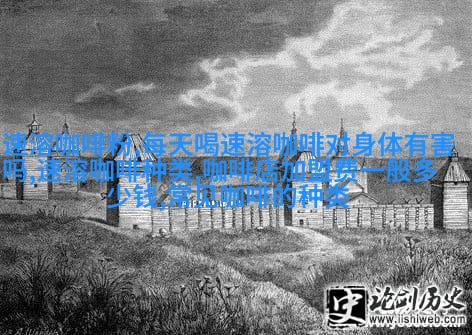首页 - 速溶咖啡 - Caffeine Showdown How Tea and Coffee Stack Up in T
Caffeine Showdown: How Tea and Coffee Stack Up in Terms of Energy Boosts

The stimulating effects of tea and coffee have been the subject of much debate, with many people questioning which beverage is more effective at providing a much-needed energy boost. As we delve into this caffeine showdown, it's important to consider not only the chemical composition but also the cultural significance and personal preferences that come into play.
The Chemical Composition

Both tea and coffee contain caffeine, a stimulant that has been shown to increase alertness, focus, and physical performance. However, there are subtle differences between the two beverages when it comes to their caffeine content. On average, an 8-ounce cup of brewed coffee contains around 95 milligrams of caffeine while an 8-ounce cup of black tea typically contains about 40 milligrams.
A Matter of Personal Preference

While these numbers may seem significant on paper, they don't necessarily translate to real-world experiences. The way our bodies metabolize caffeine can greatly impact how quickly we feel its effects. Some individuals may experience heightened alertness after consuming just one cup while others might require multiple cups before feeling any noticeable difference.
Moreover, individual tolerance levels play a crucial role in determining who benefits more from either beverage. Those who consume large amounts regularly tend to build up a resistance over time making them less sensitive to its energizing properties.

Cultural Significance
Beyond their chemical compositions or individual preferences lies another layer - cultural significance. For centuries now both tea and coffee have played vital roles in various cultures around the world as social lubricants bringing people together during gatherings or meetings.

In Japan for instance green tea (Matcha) is often consumed throughout the day due partly because it provides sustained energy without causing jitters whereas in Western countries like America where espresso culture thrives instant gratification is prioritized above all else giving rise to short yet potent shots that pack quite an energetic punch within minutes upon consumption.
Health Considerations
It's also worth mentioning here that studies show moderate intake (2-3 cups per day) can provide cognitive benefits such as improved memory concentration & creativity; however excessive consumption could lead towards negative side effects such as insomnia anxiety palpitations increased heart rate etcetera depending on your sensitivity level towards these substances
Tea enthusiasts argue that drinking green or white teas offers additional health advantages like antioxidants rich polyphenols lower risk for certain cancers cardiovascular diseases type II diabetes among other potential perks – albeit still being studied extensively by medical professionals today
On the flip side supporters for coffee claim higher levels Caffeine present in each serving make it better suited than some types if teas especially decaf options when looking purely at energizing aspects alone – though again moderation remains key so as not cross dangerous thresholds leading toward addiction withdrawal symptoms etcetera
In conclusion both beverages hold unique positions within our daily lives based on factors ranging from personal taste preferences societal norms health considerations environmental impacts historical backgrounds & even economic influences driving demand worldwide—each offering distinct advantages against differing criteria ultimately rendering definitive 'better' choice impossible without considering specific contexts circumstances priorities & values held dear by those involved
猜你喜欢
- 2025-03-25怀孕期间的黑咖啡是否能成为妊娠期的好货
- 2025-03-24怀孕期间的黑咖啡犹如春天里的花朵是否能安全绽放
- 2025-03-24品味星辰探索cephei奢斐咖啡的各种咖啡制作方法
- 2025-03-25咖啡树有几种探秘cephei奢斐咖啡的独特风味
- 2025-03-24孕期饮用黑咖啡犹如选择服装配件需谨慎考虑安全与舒适
- 2025-03-24在社会中上火牙疼饮咖啡可行性探讨于威龙商务网
- 2025-03-25吉林特产咖啡的温柔手触轻抚卵巢询问着那沉默的秘密
- 2025-03-25咖啡智慧探索卵巢的守护者与挑战者
- 2025-03-24咖啡爱好者你觉得blendy咖啡如何
- 2025-03-24探索Cephei奢斐咖啡一场对咖啡历史的味觉时旅

